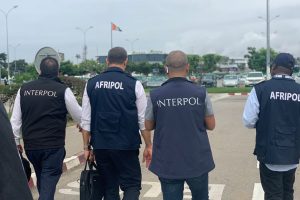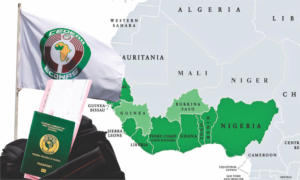Inside Africa’s Bold Crackdown on Terror Financing: Interpol and Afripol s

In a three-month sweeping campaign stretching from the savannas of Angola to the streets of Nairobi, African law enforcement agencies have joined forces with Interpol and Afripol to dismantle one of the continent’s most elusive enemies, terrorist financing.
Dubbed Operation Catalyst, the unprecedented effort ran from July to September 2025 and resulted in 83 arrests across six countries – Angola, Cameroon, Kenya, Namibia, Nigeria and South Sudan. What investigators uncovered paints a chilling portrait of how modern terror is bankrolled: a $260 million web of cash and cryptocurrency, laced with fraud, cybercrime and deceit.
![]()

What began as a counter-terrorism mission quickly spiraled into a deeper investigation of Africa’s digital underworld. Interpol said many of the financial trails were tied to online scams, Ponzi schemes, and money laundering networks. A convergence of crime that blurs the line between cybercriminals and terrorists.
Of those arrested, 21 face terrorism-related charges, while others were detained for fraud, cybercrime and illicit cryptocurrency operations. Over 15,000 people and businesses were screened, leading to 160 new persons of interest. This is a stark reminder of how far terror’s financial tentacles reach.
In Angola, police busted a cross-border money transfer network linked to terrorism and laundering operations. Twenty-five suspects were arrested, $588,000 in cash seized, and dozens of bank accounts frozen.
In Kenya, investigators traced nearly $430,000 in laundered funds through a virtual asset platform, while two others were arrested for allegedly recruiting young people into extremist groups, funded by cryptocurrency transactions traced to Tanzania.

![]()
Meanwhile, Nigeria saw the capture of 11 suspected terrorists, including high-ranking members of several groups long monitored by intelligence services.
Operation Catalyst also unearthed a massive crypto-based Ponzi scheme masquerading as an online trading platform. Spanning 17 countries and defrauding more than 100,000 victims, the scam siphoned off $562 million, with some of those funds believed to have trickled into terror coffers.
Interpol has since issued a Red Notice for one of the alleged masterminds, accused of laundering $5 million through a maze of digital wallets before cashing out. In the opinion of the Interpol Secretary General Valdecy Urquiza, the operation marks a milestone in Africa’s fight against terrorism financing. This is the first time financial crime, cybercrime and counterterrorism units across Africa have worked hand-in-hand. Valdecy Urquiza noted that – “by sharing intelligence, we can disrupt the lifeblood of terrorist networks and their money movements”.
Afripol’s Executive Director, Ambassador Jalel Chelba, echoed that sentiment –“when African law enforcement works together, we send a clear message that terrorism cannot hide behind financial systems or digital currencies”.
Funded by Germany’s Federal Foreign Office through the ISPA programme, Operation Catalyst also drew support from the private sector. Global firms such as Binance, Moody’s and Uppsala Security contributed cyber intelligence and analytics, signaling a new era of collaboration between law enforcement and technology companies.

Behind the headlines, families across the continent, which are often the unseen victims of both terrorism and financial scams, are watching closely. As one Nigerian mother whose son was lured by online recruiters told a local journalist, that the fight should sustainably go beyond just arresting people to cutting-off the money that feeds this monstrous movements.
And that may be the most enduring legacy of Operation Catalyst. A new kind of African unity, forged in security briefings, data exchanges and in the shared resolve to protect lives, livelihoods and futures from the invisible war from terrorism, financed in the shadows.






